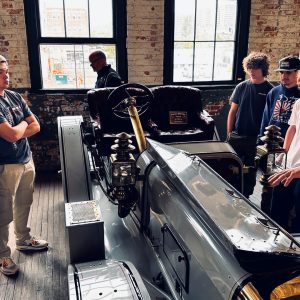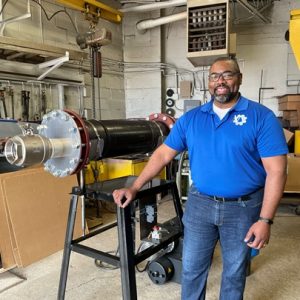Students can learn about automotive engineering in the very place that launched Detroit’s reputation as the Motor City. The Ford Piquette Plant Museum, in collaboration with Meknology, Inc. and Lawrence Technological University (LTU), offers a workshop introducing students to automotive engineering through a historical and hands-on lens.
Automotive Foundations engages students in the design and function of the first Model T gasoline engines and early electric vehicles of the early 1900s. Through interactive lessons and guided builds, they will construct both a basic gasoline engine and a simple electric motor. While the primary focus is on early technologies, students will also explore how modern internal combustion and electric systems have evolved. Emphasis will be placed on innovation, historical impact, and sustainability.
This course takes place at the museum on two consecutive Saturdays (2026 dates TBA) from 10 a.m. to 2 p.m. It is designed for ages 14 to 21 with an interest in developing mechanical knowledge and skills. The cost is $100, but full scholarships are available based on need. A box lunch, snacks and required safety equipment are provided. The sessions conclude with Model T driving demonstrations and rides for the students. For a complete workshop schedule click here.

Please complete the registration form below and email it to info@fordpiquetteplant.org. Fees are due at the time of enrollment to reserve your spot. To apply for a scholarship, please send a detailed request in the email with your form.

As the museum’s first Engineer-in-Residence, Daniel Hodges will empower youth through experiential learning. Students will compare and contrast early engines in terms of mechanical simplicity, functionality and limitations.
Hodges is a seasoned mechatronics and mechanical design engineer. He is the founder of Meknology Inc. located in Newlab, a hub for technology start-ups adjacent to Michigan Central Station. Meknology designs patented sustainable systems to transform waste byproducts into valuable, marketable resources.